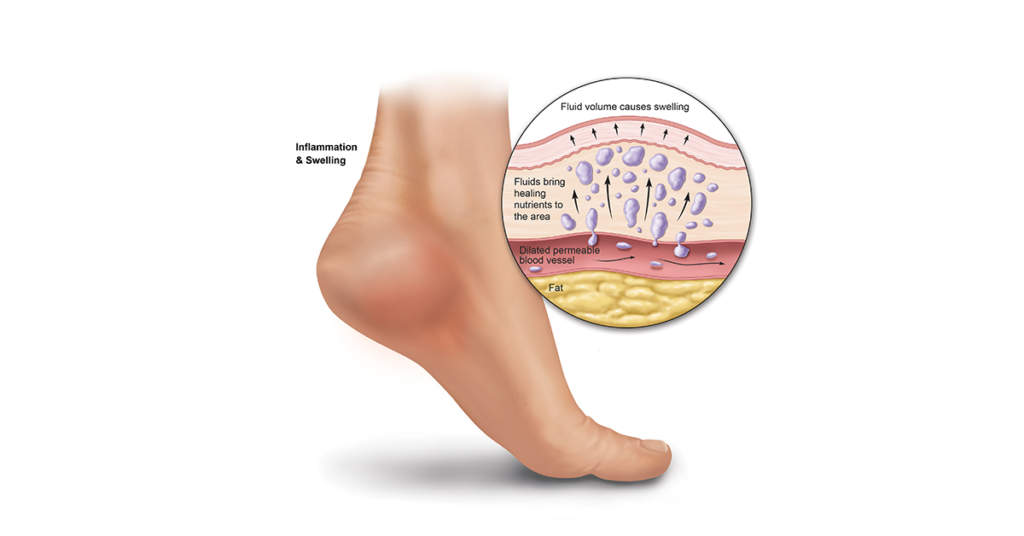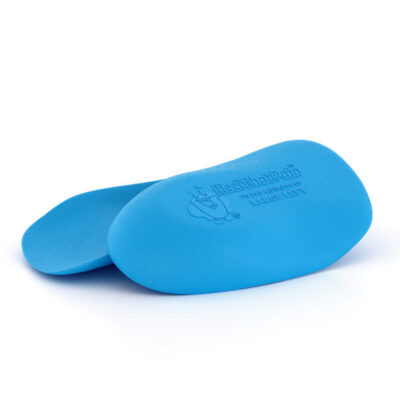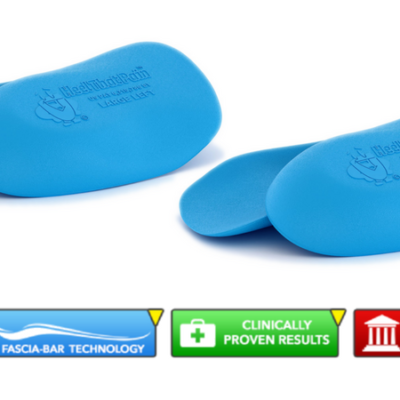Foot Swelling & Edema
Swelling of the feet occurs when there is an overabundance of fluid between the tissue cells. It can start as a gradual process, with mild swelling in the morning and continued swelling throughout the day.
Foot Swelling Caused By Edema
Edema is the most common cause of swollen feet and ankles, and it is a medical condition characterized by excess fluid being trapped in body tissues. It is often seen in the legs, ankles, and feet, but can occur anywhere in the body.
While edema is not particularly harmful to the body, it can be a symptom of other more severe medical conditions and should not be ignored. It can result from serious conditions such as heart failure, cirrhosis of the liver, kidney disease, or from something as simple as sitting for too long in one position.
Varicose veins and phlebitis (inflammation of the vein’s walls) are also common factors with edema, and you may experience pitting, which is when and indentation is left when you press on the swollen area for a few seconds. Skin ulcerations may also develop with continued swelling of the feet and ankles.
Can Plantar Fasciitis Cause Foot Swelling?
Plantar fasciitis can also cause inflammation and swelling of the feet. With plantar fasciitis, inflammation may be noticed on the bottom of the foot where the arch meets the heel bone. If the entire foot is swollen or the swelling extends to the top of the foot or ankle, plantar fasciitis may not be the cause.
Other Causes of Foot Swelling and Edema:
- Kidney, heart, liver or blood vessel condition
- Eating a poor diet, high in salt and carbohydrates
- Abusing drugs, laxatives or diuretics
- Diabetes
- Birth control pills or hormone replacement therapy
- Pregnancy and menstruation
- Neuromuscular disorders
- Trauma to the area from sprains or blunt force
- An allergic reaction to a food, animal or other allergen
If you notice abnormal swelling in your feet or legs, it is important to visit your doctor to determine the cause. Edema can put you at risk for high blood pressure, headaches, heart palpitations, weight gain, and increase urination frequency.

How to Reduce Swelling of the Feet
Elevating your feet is one of the best ways to reduce or eliminate foot swelling caused by edema, diabetes, or any other condition. Sitting in a recliner chair is an easy way to keep your feet elevated, and you can also consider products like bed wedges and leg cushions which can help elevate your feet.
Using compression socks and graduated compression hosiery is another way to keep swelling down throughout the day, and wearing shoes with proper fit will ensure that the swelling does not cause further damage to your feet. Icing your feet can also help reduce inflammation and swelling, especially on the bottom of your feet.
To reduce foot swelling it is recommended to:
- Increase activity with light exercise such as walking
- Avoid standing for long periods of time
- Sit with the feet elevated as much as possible
- Limit sodium intake
- Drink lots of water
- Avoid taking laxatives or diuretics
- Use a compression pump can help the fluid in the tissues to return to thee blood vessels.
Home treatments such as diet, exercise, icing, and elevation will often reduce or eliminate swelling in the feet. If you notice increased swelling in your feet or ankles, or the swelling does not subside with these home treatments, it is important that you visit your doctor to eliminate the possibility of more serious health conditions.






